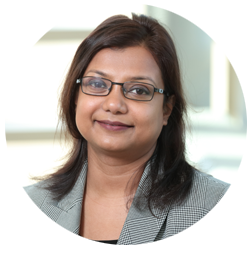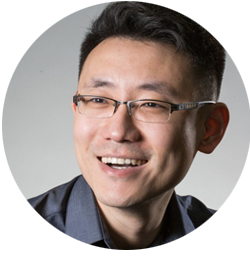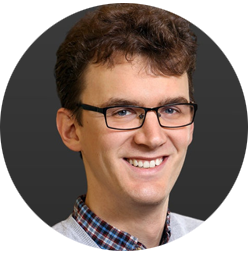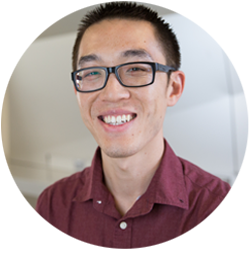Turning Quantum Bottlenecks into Breakthroughs
CS researchers develop a novel system that lets multiple programs run at once on a single quantum machine, promising faster scientific discoveries.
CS researchers develop a novel system that lets multiple programs run at once on a single quantum machine, promising faster scientific discoveries.
The Software Systems Laboratory developed Spoq, a tool that significantly reduces the time and manual effort needed to verify software systems.
Gu received the OSDI 2023 Early-Career VMware Systems Research Award for developing fundamental system verification theory and bug-free, and hacker-resistant systems software.
As one of the highest honors for young faculty, the NSF CAREER award recognizes outstanding research. Meet the Columbia Engineering professors who earned the award.
The award supports early-career faculty who have the potential to serve as academic role models in research and education and to lead advances in the mission of their department or organization.
Ronghui Gu is recognized for fundamental theory underlying systems verification and for synthesizing the results into realistic bug-free and hacker-resistant systems software.
Programming errors on the blockchain can mean $100 million lost in the blink of an eye. Ronghui Gu and his company CertiK are trying to help.
The award will help fund research and support the work of a graduate student.
CS researchers demonstrate the first formally verified Arm Confidential Compute Architecture prototype
Another high-profile hack has raised more questions about the vulnerabilities of the blockchain.
Assistant Professor Ronghui Gu’s blockchain security firm CertiK is considered a unicorn company.
Professors Jason Nieh and Ronghui Gu build the first system to guarantee the security of virtual machines in the cloud, SeKVM could transform how cloud services are designed, developed, deployed, and trusted.
Faculty from the department have been named recipients of the 2020 Amazon Research Awards.
Ronghui Gu’s, CertiKOS, selected as a “Research Highlight” in the Communications of the ACM.
The department welcomes Baishakhi Ray, Ronghui Gu, Carl Vondrick, and Tony Dear.

Baishakhi Ray
Assistant Professor, Computer Science
PhD, University of Texas, Austin, 2013; MS, University of Colorado, Boulder, 2009; BTech, Calcutta University, India, 2004; BSc, Presidency College, India, 2001
Baishakhi Ray works on end-to-end software solutions and treats the entire software system – anything from debugging, patching, security, performance, developing methodology, to even the user experience of developers and users.
At the moment her research is focused on machine learning bias. For example, some models see a picture of a baby and a man and identify it as a woman and child. Her team is developing ways on how to train a system and to solve practical problems.
Ray previously taught at the University of Virginia and was a postdoctoral fellow in computer science at the University of California, Davis. In 2017, she received Best Paper Awards at the SIGSOFT Symposium on the Foundations of Software Engineering and the International Conference on Mining Software Repositories.

Ronghui Gu
Assistant Professor, Computer Science
PhD, Yale University, 2017; Tsinghua University, China, 2011
Ronghui Gu focuses on programming languages and operating systems, specifically language-based support for safety and security, certified system software, certified programming and compilation, formal methods, and concurrency reasoning. He seeks to build certified concurrent operating systems that can resist cyberattacks.
Gu previously worked at Google and co-founded Certik, a formal verification platform for smart contracts and blockchain ecosystems. The startup grew out of his thesis, which proposed CertiKOS, a comprehensive verification framework. CertiKOS is used in high-profile DARPA programs CRASH and HACMS, is a core component of an NSF Expeditions in Computing project DeepSpec, and has been widely considered “a real breakthrough” toward hacker-resistant systems.

Carl Vondrick
Assistant Professor, Computer Science
PhD, Massachusetts Institute of Technology, 2017; BS, University of California, Irvine, 2011
Carl Vondrick’s research focuses on computer vision and machine learning. His work often uses large amounts of unlabeled data to teach perception to machines. Other interests include interpretable models, high-level reasoning, and perception for robotics.
His past research developed computer systems that watch video in order to anticipate human actions, recognize ambient sounds, and visually track objects. Computer vision is enabling applications across health, security, and robotics, but they currently require large labeled datasets to work well, which is expensive to collect. Instead, Vondrick’s research develops systems that learn from unlabeled data, which will enable computer vision systems to efficiently scale up and tackle versatile tasks. His research has been featured on CNN and Wired and in a skit on the Late Show with Stephen Colbert, for training computer vision models through binge-watching TV shows.
Recently, three research papers he worked on were presented at the European Conference for Computer Vision (EECV). Vondrick comes to Columbia from Google Research, where he was a research scientist.

Tony Dear
Lecturer in Discipline, Computer Science
PhD, Carnegie Mellon University, 2018; MS, Carnegie Mellon University, 2015; BS, University of California, Berkeley, 2012
Tony Dear’s research and pedagogical interests lie in bringing theory into practice. In his PhD research, this idea motivated the application of analytical tools to motion planning for “real” or physical locomoting robotic systems that violate certain ideal assumptions but still exhibit some structure – how to get unconventional robots to move around with stealth of animals and biological organisms. Also, how to simplify tools and expand that to other systems, as well as how to generalize mathematical models to be used in multiple robots.
In his teaching, Dear strives to engage students with relatable examples and projects, alternative ways of learning, such as an online curriculum with lecture videos. He completed the Future Faculty Program at the Eberly Center for Teaching Excellence at Carnegie Mellon and has been the recipient of a National Defense Science and Engineering Graduate Fellowship.
At Columbia, Dear is looking forward to teaching computer science, robotics, and AI. He hopes to continue small-scale research projects in robotic locomotion and conduct outreach to teach teens STEM and robotics courses.
Find open faculty positions here.
President Bollinger announced that Columbia University along with many other academic institutions (sixteen, including all Ivy League universities) filed an amicus brief in the U.S. District Court for the Eastern District of New York challenging the Executive Order regarding immigrants from seven designated countries and refugees. Among other things, the brief asserts that “safety and security concerns can be addressed in a manner that is consistent with the values America has always stood for, including the free flow of ideas and people across borders and the welcoming of immigrants to our universities.”
This recent action provides a moment for us to collectively reflect on our community within Columbia Engineering and the importance of our commitment to maintaining an open and welcoming community for all students, faculty, researchers and administrative staff. As a School of Engineering and Applied Science, we are fortunate to attract students and faculty from diverse backgrounds, from across the country, and from around the world. It is a great benefit to be able to gather engineers and scientists of so many different perspectives and talents – all with a commitment to learning, a focus on pushing the frontiers of knowledge and discovery, and with a passion for translating our work to impact humanity.
I am proud of our community, and wish to take this opportunity to reinforce our collective commitment to maintaining an open and collegial environment. We are fortunate to have the privilege to learn from one another, and to study, work, and live together in such a dynamic and vibrant place as Columbia.
Sincerely,
Mary C. Boyce
Dean of Engineering
Morris A. and Alma Schapiro Professor